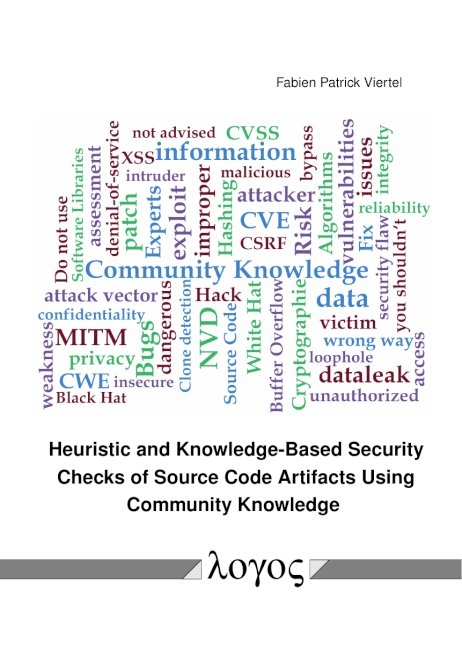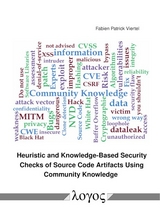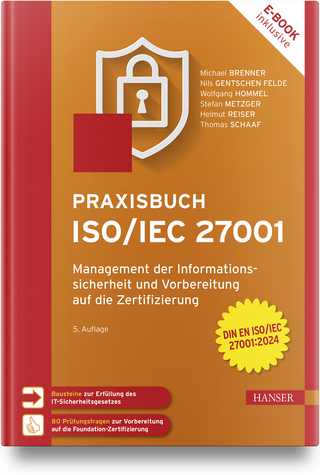Heuristic and Knowledge-Based Security Checks of Source Code Artifacts Using Community Knowledge
Seiten
The goal of this dissertation is to support developers in applying security checks using community knowledge. Artificial intelligence approaches combined with natural language processing techniques are employed to identify security-related information from community websites such as Stack Overflow or GitHub. All security-related information is stored in a security knowledge base. This knowledge base provides code fragments that represent the community´s knowledge about vulnerabilities, security-patches, and exploits.
Comprehensive knowledge is required to carry out security checks on software artifacts, such as data covering known vulnerabilities and their manifestation in the source code as well as possible attack strategies. Approaches that check software libraries and source code fragments are provided for the automated use of the data.
Insecure software libraries can be detected using the NVD combined with metadata and library file hash approaches introduced in this dissertation. Vulnerable source code fragments can be identified using community knowledge represented by code fragments extracted from the largest coding community websites: Stack Overflow and GitHub. A state-of-the-art clone detection approach is modified and enriched by several heuristics to enable vulnerability detection and leverage community knowledge while maintaining good performance. Using various case studies, the approaches implemented in Eclipse plugins and a JIRA plugin are adapted to the users´ needs and evaluated.
Comprehensive knowledge is required to carry out security checks on software artifacts, such as data covering known vulnerabilities and their manifestation in the source code as well as possible attack strategies. Approaches that check software libraries and source code fragments are provided for the automated use of the data.
Insecure software libraries can be detected using the NVD combined with metadata and library file hash approaches introduced in this dissertation. Vulnerable source code fragments can be identified using community knowledge represented by code fragments extracted from the largest coding community websites: Stack Overflow and GitHub. A state-of-the-art clone detection approach is modified and enriched by several heuristics to enable vulnerability detection and leverage community knowledge while maintaining good performance. Using various case studies, the approaches implemented in Eclipse plugins and a JIRA plugin are adapted to the users´ needs and evaluated.
| Erscheinungsdatum | 02.08.2021 |
|---|---|
| Sprache | englisch |
| Maße | 145 x 210 mm |
| Einbandart | Paperback |
| Themenwelt | Literatur ► Zweisprachige Ausgaben ► Deutsch / Englisch |
| Informatik ► Netzwerke ► Sicherheit / Firewall | |
| Schlagworte | Code Clone Detection • Community Knowledge • machine learning • Natural Language Processing • vulnerability detection |
| ISBN-10 | 3-8325-5349-5 / 3832553495 |
| ISBN-13 | 978-3-8325-5349-4 / 9783832553494 |
| Zustand | Neuware |
| Haben Sie eine Frage zum Produkt? |
Mehr entdecken
aus dem Bereich
aus dem Bereich
Das Lehrbuch für Konzepte, Prinzipien, Mechanismen, Architekturen und …
Buch | Softcover (2022)
Springer Vieweg (Verlag)
CHF 48,95
Management der Informationssicherheit und Vorbereitung auf die …
Buch (2024)
Carl Hanser (Verlag)
CHF 97,95




